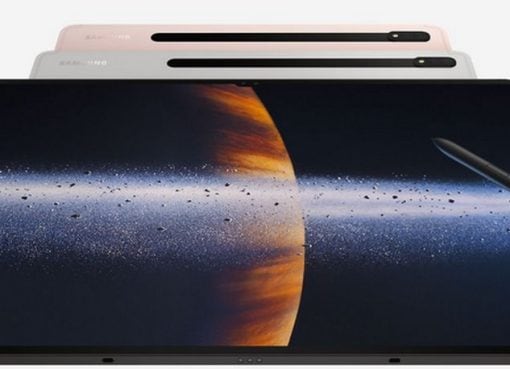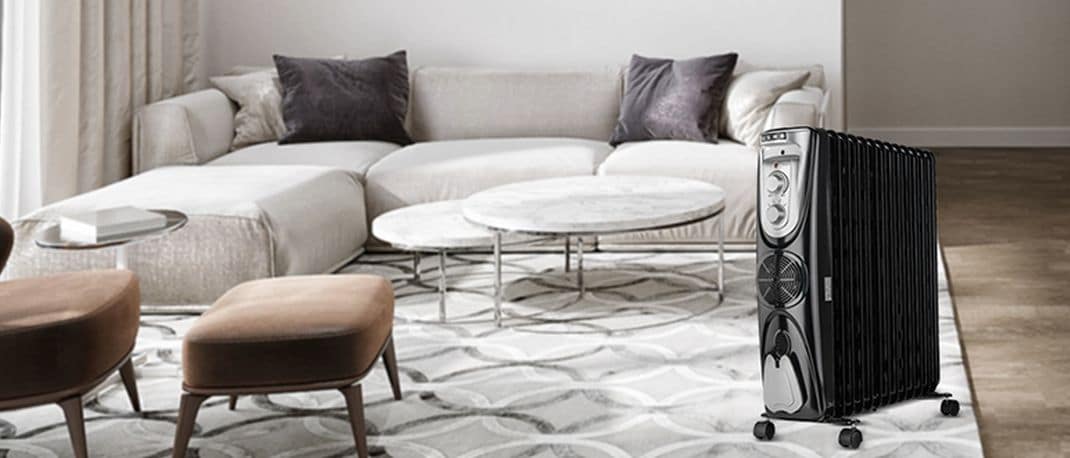It’s not hard to identify a gaming laptop from the other standard notebooks. It’s probably the one with the aggressive design, a bulky chassis and possibly a colourful lit-up keyboard. No doubt design is an important aspect, but ultimately it’s what on the inside that matters in a gaming laptop. So how do you choose one and what do you look for? Read below, and find out.
Processor (CPU)
The processor is the brain of a laptop, so it’s an important component to consider while purchasing a laptop. The processor runs all the games and applications. To play modern games, that are highly demanding on hardware, you really need a performance processor. One way to look for a high-end processor is to look at the clock speeds (GHz - gigahertz). Higher the core speed, higher the performance of the processor. Of course, an entry-level Intel Core i3 with a high clock speed won’t get you far. An Intel Core i5 or Core i7 clocked at high speeds would be a better option. Similar, making comparisons of core speeds between AMD and Intel processors can be misleading. Preferably look for core speeds, between processor from the same series of a specific brand. As games get more advanced, their dependence on the cores increase. A laptop with a quad-core processor would be the ultimate performer. A similar method has to be used while looking at number of core on a processor, as we did with the core speed. Intel processors tend to be largely recommended for gaming laptops, and that’s what you might find in most cases. Look for laptops, running at least a new generation, Core i5 processor. The Core i7 series of processors carry more features. Latest generation processors are designed deliver better performance, while being more efficient.
Graphics card (GPU)
This is the most component in any gaming laptop. The graphics card is in charge of the processing and rendering the game on the screen. This task is too much for the processor to handle, so a dedicated graphics card is needed, if you want to enjoy games on your laptop. Without a good graphics card, you won’t be able to run a game at its best resolution or quality. Even if you get the quality, you’ll see the game stutter. In gaming performance terms, the frame rate would be too low. Some games won’t even run, if your graphics card specifications doesn’t meet the minimum requirement of the game.

NVIDIA and AMD are the two big names in graphics solutions. There are plenty of options to choose from, depending on your gaming requirement. Remember, the Intel integrated solution will only let you play really basic titles, so look for the large NVIDIA GeForce or AMD Radeon stickers on the laptops you’re looking for.
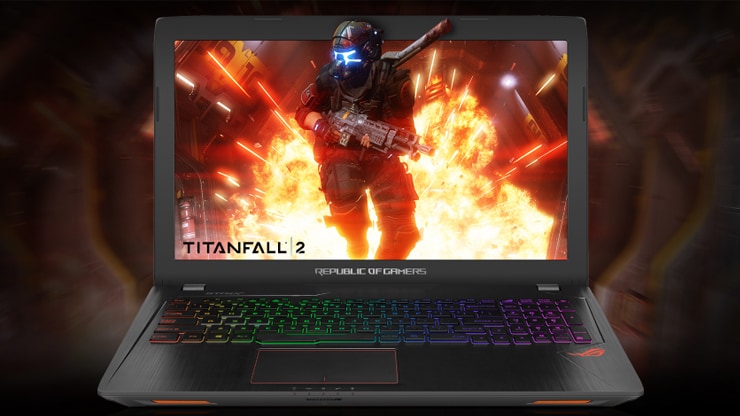
If you just want to enjoy moderate amount of gaming, then we recommend looking for something like the NVIDIA GeForce GTX 960M. Among AMD GPUs, look out for the Radeon R7 series. These graphics card will support most games and also fall under the affordable category. If you don’t want any compromises, then you need to invest in a really high-end graphics card. NVIDIA’s latest GeForce 10 series of cards and AMD’s Radeon R9 GPUs are the ones to look out for. High-end graphics cards let you even run virtual reality apps and games on your laptop.
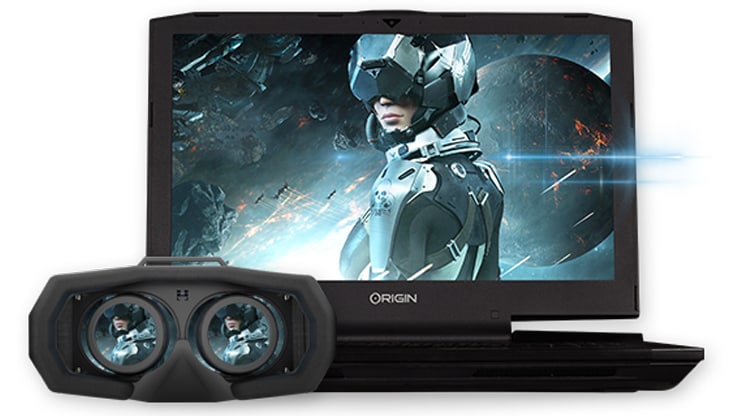
It’s good to have an idea of what you’re going to be playing on the laptop. Consider all the features that are important to you, including VR and 4K support. Unlike desktops, you can’t upgrade the graphics card in a laptop, so it’s important to choose wisely. Additional performance will let you use your laptop for longer, as game demands increase.
RAM
Games are far larger in size than they used to be. The general thumb rule for games is, higher capacity RAM is better. When you’re looking at purchasing a gaming laptop, ideally opt for laptops with 8GB of RAM or more. In most cases, 8GB of RAM should suffice, although 16GB would be recommended, if you’re looking at a higher spec laptop. Some laptops let you upgrade the amount of RAM, so you might be able to increase the amount of RAM at a later time. Just be aware of the warranty policy from the manufacturer before you do that.
Storage

A single game can take up in excess of 50GB of storage space on your laptop, so it’s advisable to purchase a laptop with at least 1TB of storage. It should be enough to store all your games. When buying a laptop, you can also consider SSDs (Solid State Drive) instead of hard drives. They don’t have any moving parts like the conventional hard drives do, so they’re faster, lighter and more power efficient. Their benefits include faster loading time and faster transfer speeds. They add to a lag-free gaming experience. If SSDs are a little too expensive, inquire if the hard drive on the laptop runs at 7,200 RPM speed. While most drivers operate at around 5200 – 5400rpm, 7200rpm drives will deliver better transfer rates.
Screen resolution
The whole point of investing so much money on a gaming laptop, is to enjoy games in the best quality, with the maximum detail. The standard HD resolution (1366 x 768) doesn’t quite do justice. Try to look for laptops that come with 1600x900 or better still, full HD (1920x1080) resolution displays. The difference is noticeable, not just with games but other applications as well. Having a higher resolution also gives you more screen space to work with. 4K resolution is also an option available on laptops today. No doubt you get extreme sharpness, but those laptops are also expensive. It also requires more processing power and battery.
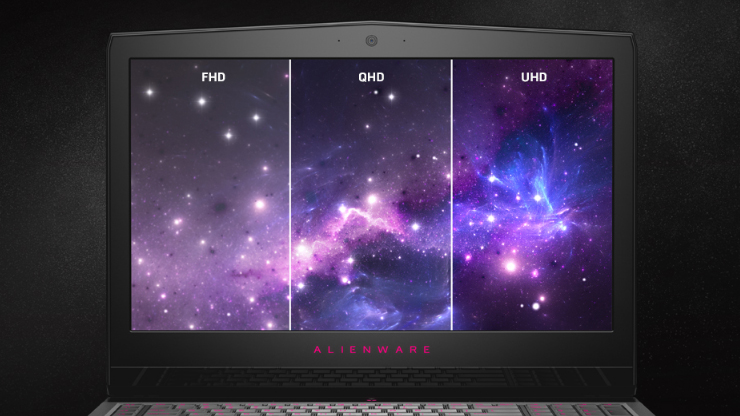
If given the option, choose IPS panels over TN (Twisted Nematic), mostly because they offer better viewing angles and vibrant colours. Another thing you need to consider is if you want a matte or a glossy screen, but that’s mostly a personal choice. We wouldn’t recommend a touch screen laptop for gaming. They’re expensive and games don’t really use touchscreens yet.
Keyboard
You’re probably going to spend countless number of hours mashing the keys on the laptop. A good gaming laptops needs to have a keyboard that can withstand that. Besides that, you need to be comfortable using it. Pay attention to the key travel so there’s some movement rather than a flat, hard one. It should feel more tactile and should have good feedback. Look at laptops with a backlit keyboard, which will come in handy during long gaming sessions at night. Some laptops also have multi-coloured backlights for certain keys which can be customized with the help of built-in software. However, this has more to do with the looks than function. Not to mention, these kind of features add to the cost.

You can also invest in separate mechanical keyboards that are specifically designed for gaming. They are generally better than the keyboards on laptops, and will last much longer. You can even get keyboard with customizable backlights that we mentioned. Of course it doesn’t just end there. To make the most of gaming laptops, you also need to equip it with the right accessories. Look out for specialized gaming mouse. They offer more features that come handy while playing games. Gaming laptops also heat up a lot, so a cooling pad can also help. A Steam account is the next thing to do. There are plenty of free titles to choose from, as well as great deals on offer that come up every weekend.

Ultimately, choosing the right gaming laptop also comes down to the budget. So we recommend giving importance to the essentials first, which include a good GPU, processor and screen. You can choose the other features based on your requirement. Take your time and research on models and features, because a gaming laptop is a big investment. It’s also your gateway to a good gaming experience.

